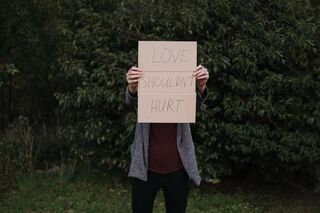Domestic Violence
Woman-Hating Tweets Linked to Real-Life Violence
Research shows misogynistic tweets are associated with violence against women.
Posted March 15, 2021 Reviewed by Gary Drevitch
Content warning: Intimate-partner violence
Researchers have spent years trying to untangle the complex links between the content of social media posts and offline behavior. An extensive new analysis conducted by researchers from the University of Melbourne and the University of New South Wales provides fuel for those who argue that online hate translates to real-world harm. Using crime statistics from the Federal Bureau of Investigation (FBI), the researchers found that increases in misogynistic (i.e., woman-hating) tweets were correlated with incidents of domestic or family violence.

Though Twitter has a “hateful conduct policy” that prohibits the promotion of violence against others based on gender and other identities, it’s no secret that social media companies have found such policies difficult to enforce. Additionally, tweets that express hatred toward members of a group often do not explicitly promote or threaten violence. But hateful posts can still encourage violence by feeding the attitudes that make aggression more likely.
Newly published research in the journal Psychological Science tested this notion by examining misogynistic tweets – those that express hatred of women. Past research has demonstrated that men with misogynistic beliefs are more likely to commit violence against women. Likewise, across many parts of the world, areas in which violence against women is viewed as more acceptable have higher rates of actual violence against women.
Users often turn to social media to express extreme attitudes, since these types of posts tend to get the most attention. Misogynistic attitudes tend to be angry and aggressive – just the type of content that attracts attention and spreads rapidly on social media.
Of course, intimate partner violence has numerous contributing factors, including characteristics of individual perpetrators and societal forces that encourage or discourage violence against women. These researchers chose to focus on misogynistic tweets as one of many societal-level factors that could play a role in promoting this type of violence. It’s important to note that individuals of all genders can be victims of intimate-partner violence. However, based on FBI statistics, 70% of victims of intimate-partner violence are women and 70% of offenders are men. One study of over 100,000 visits to U.S. emergency rooms found that among visits coded as resulting from “battering by a partner or spouse,” the patient was a woman 93% of the time.
The authors of this new study reasoned that if misogynistic attitudes cause violence against women, greater rates of such violence would occur in areas where more woman-hating content was tweeted. Rates of violence against women were determined using FBI data for “offenses against family and children,” most of which are cases of intimate-partner violence against women. In all analyses, the researchers statistically controlled for several variables known to be related to intimate-partner violence, including geographic region, alcohol availability, education, and income.

The researchers obtained two years’ worth of tweets from more than 400 defined regions of the U.S., across 47 states. Nearly 17,000 tweets were identified as containing misogynistic content. These tweets included hostile and sexually objectifying language toward women and language endorsing male dominance of women. Examples of misogynistic tweets identified by the researchers included, “Women are all b*****s,” “Whore had it coming,” and, “Make me a sandwich, slut.”
Results of the analysis showed that incidents of domestic violence were positively correlated with the number of misogynistic tweets posted in a given geographic area. Misogynistic tweets predicted later incidents of violence, but incidents of violence did not predict later misogynistic tweets, suggesting that tweets incite violence rather than the other way around. The authors concluded that misogynistic tweets may help to create groups of men who share hostile attitudes toward women, or promote bonding among men who are already part of such communities.

Overall, misogynistic tweets showed only a small correlation with domestic violence incidents. However, including these tweets in a statistical model along with other factors that predict domestic violence resulted in significantly more accurate predictions of the number of incidents in a geographic area. And when it comes to a problem as significant as intimate-partner violence, every piece of the puzzle matters.
If you are worried about your safety, please contact the National Domestic Violence Hotline at 1.800.799.7233 or go to thehotline.org.


